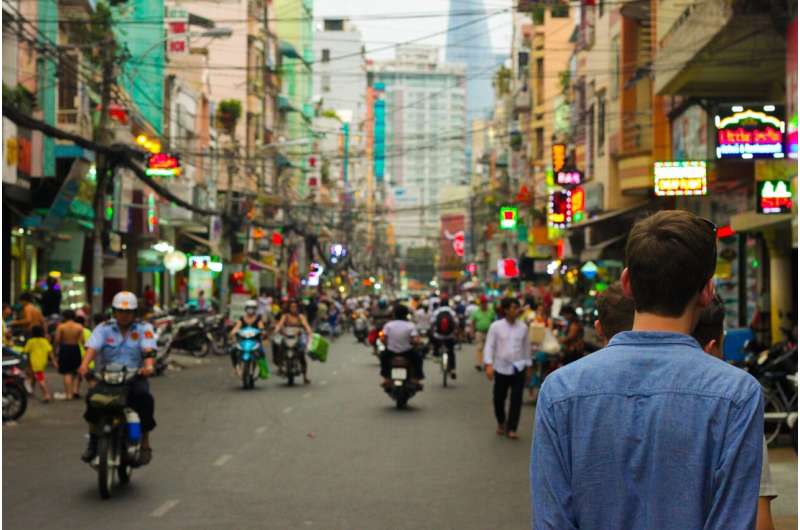This article has been reviewed according to Science X's editorial process and policies. Editors have highlighted the following attributes while ensuring the content's credibility:
fact-checked
peer-reviewed publication
trusted source
proofread
Historical memories have long reach in consumer preferences, study finds

Zachary Zhong had heard his grandparents' stories about the Japanese invasion in 1944 of neighboring counties in his hometown in China. As the Japanese army continued their advance, civilians were killed and injured, while others fled the invaders' path, some taking shelter in his family's ancestral home.
Those events lodged deep into locals' memories. Curious about the impact of a re-ignited territorial dispute between Japan and China in 2012, Zhong, now an assistant professor of marketing at the University of Toronto's Rotman School of Management, looked at what happened to car sales in the province of Guangxi around the same time. Guangxi had the highest civilian casualty rate of any Chinese province during the war.
"Across generations, those historical memories get passed down to present-day consumers," said Prof. Zhong.
The work is published in Marketing Science.
The invaded counties saw a 6.8% drop in sales of Japanese cars and a 5.3% increase in Chinese cars following the height of the 2012 dispute, compared to Guangxi counties that hadn't experienced invasion. Those effects were stronger for larger and more expensive cars and in counties with larger shares of people born before 1936. The impact was not short-lived, lasting more than two years.
Prof. Zhong and co-investigator Nan Chen of the National University of Singapore looked at China's vehicle registration data for the top 100 bestselling car models as well as provincial archival data on losses and casualties by county during the Imperial Japanese Army's "Operation Ichi-Go." Between late September 1944 and early January 1945, the Imperial Japanese Army occupied about two-thirds of Guangxi.
China-Japan relations normalized in 1972. However, a longstanding dispute remained over the sovereignty of a group of islands in the East China Sea. The dispute flared in August and September 2012 after the Japanese government nationalized the main islands and there were large protests in many Chinese cities.
The car purchase effects were seen despite the fact that the Japanese cars were produced in China through joint Chinese-Japanese ventures. However, models with less recognizably Japanese names did not suffer as much.
Meanwhile, sales of a local independent brand created through a Japanese joint venture were not impacted by the "history effect," providing clues for how foreign brands can mitigate the impacts of past conflicts on consumer behavior.
"Start a local brand," said Prof. Zhong. "You can take advantage of the local association."
Foreign companies can also try to play down the associations of their products with their country of origin.
But in the current era of geopolitical tensions and protectionism, perhaps the best way to avoid the business hangover of history is this: "Our paper shows you should not invade other countries," said Prof. Zhong. "If you do that, people will hold a long grudge."
More information: Nan Chen et al, History and Country-of-Origin Effects, Marketing Science (2023). DOI: 10.1287/mksc.2023.1440
Journal information: Marketing Science
Provided by University of Toronto




















